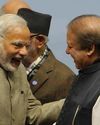Our ancestors explored unknown territories and created new civilisations. For us, the next frontier is space.

IF NOT ON Earth, where else can humans beings be? Not as a traveller in a spacecraft or as a one-off tourist on the moon but as an immigrant, or a coloniser who sets up a permanent residency for multiple generations. Given our current knowledge of physics and the state of propulsion technology, we really do not have the ability to travel to other stars in a reasonable amount of time, so our search for that second home for humanity is restricted to our own solar system. Where do we start?
There are two divergent points of view on where to locate such an extraterrestrial colony. Some believe that the colony should be located on a natural body like a planet, satellite or an asteroid, while others think that the best bet would be an artificial structure in orbit around a planet or in space. There are pros and cons for both. What is common to both approaches is the realisation that any environment outside the terrestrial biosphere that we currently inhabit is inhospitable if not actually hostile to all kinds of known life forms, including humans. The availability of a magnetosphere that shields us from cosmic radiation, of liquid water that is fundamental to our biology and of an atmosphere that has oxygen for our metabolism is essential, but unfortunately there is no place where all of this is readily available. So wherever we go, we would need to create this environment artificially. Question is, where is it that this can be done with the least effort or at lowest cost.
This story is from the December 2016 edition of Swarajya Mag.
Start your 7-day Magzter GOLD free trial to access thousands of curated premium stories, and 9,000+ magazines and newspapers.
Already a subscriber ? Sign In
This story is from the December 2016 edition of Swarajya Mag.
Start your 7-day Magzter GOLD free trial to access thousands of curated premium stories, and 9,000+ magazines and newspapers.
Already a subscriber? Sign In

Refuging Progess
There is a well-orchestrated global conspiracy to deny scientific and technological developments from the West to Third World countries.

The Monk Of Science
Vivekananda believed that Religion should be subjected to scientific methods of investigation. The third and concluding part of our series on the Swami and his views on science.
The Next Step
Indian technical manpower can be trained for high-value-added emerging services in the era of mass commoditisation of hardware.
The Threat Of Autarchy
The force of globalisation is an irreversible reality, and it is countries like India and China that will nurture it going forward.

Neanderthals: The Womb Of Caves
Recent discoveries indicate that Neanderthals may have had a rich inner life, including symbolic thought. Indeed, they may have been the progenitors of human religions.

Getting India's World Right
Incremental concessions will get India nowhere with Pakistan and China. What we need is a classically conservative foreign policy, based on realism.

The Hesitant Orbit
In order to march boldly ahead into the deep space, New Delhi must work towards building a station, boost its techno-economic planning and use the Indian Space Research Organisation smartly.

Nudges And Narratives
The debate surrounding Sanjay Leela Bhansali’s Padmavati brings India a complex network of portraits within a cultural world-system.

The Spell Of Specialisation
THE INDIAN ADMINISTRATIVE SERVICE NEEDS AN URGENT REJIG. THE KEY TO SPEED AND EFFICIENCY LIES IN PUTTING AN END TO A GENERALIST APPROACH AND IN GOING FOR A NEW SERVICE.
The Great Gamble
With demonetisation, the prime minister has taken a huge risk— both economic and political. He must succeed, because this move could transform both our economy and our society.